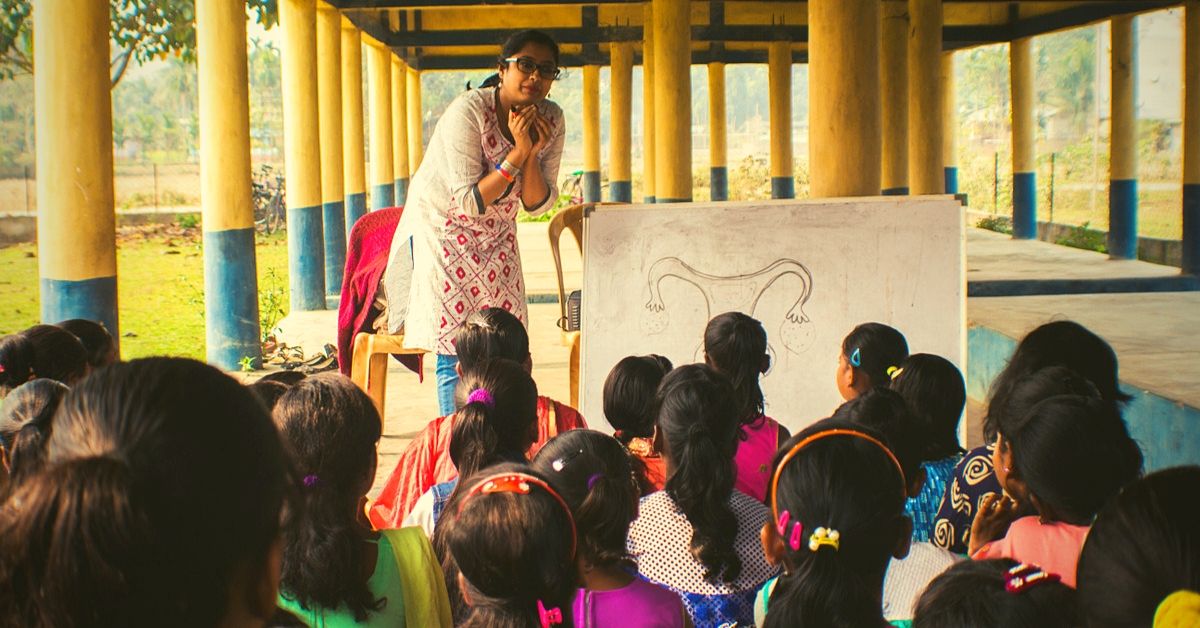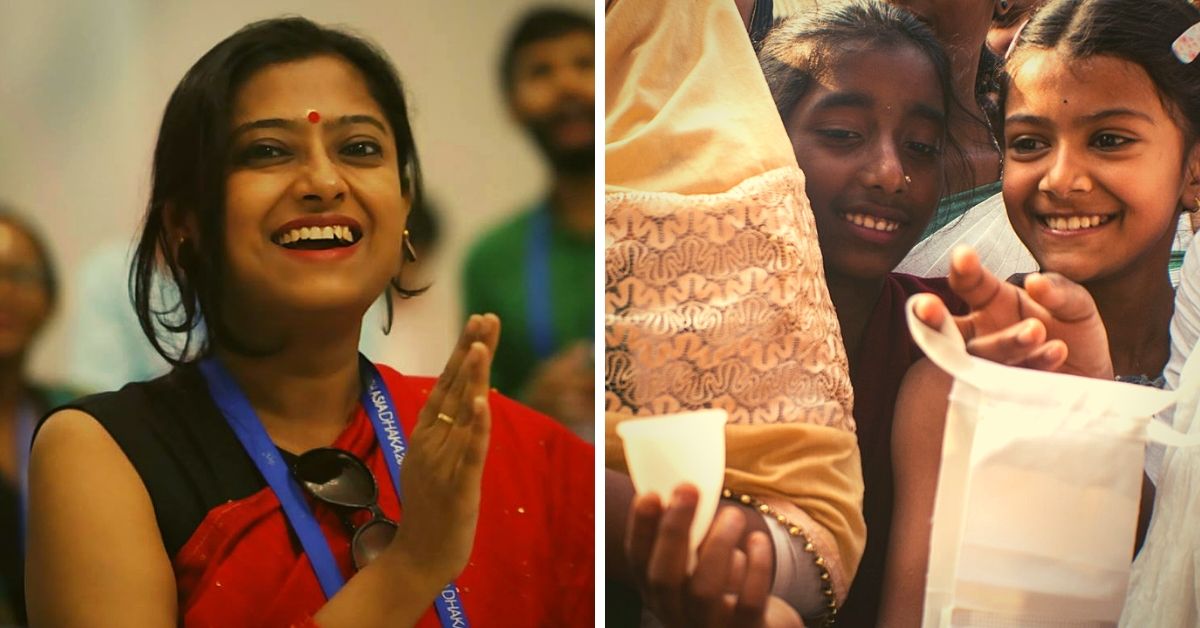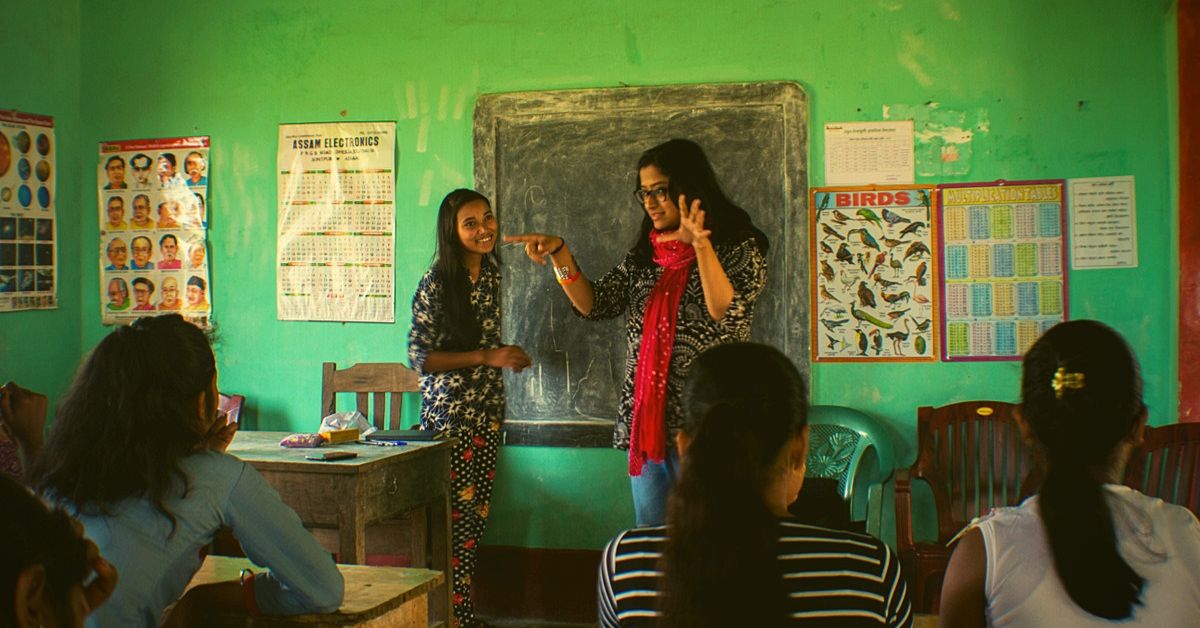Woman’s Fight for ‘Period-Friendly’ Flood Shelters in Assam Deserves Our Support!
"Yes, you need roti, kapda and makaan. But, what will a girl do if she is continuously bleeding under her skirt? It's a social issue that needs immediate solution from state governments," says the woman behind the 'Dignity in Flood' petition. #MenstrualHygieneDay #MenstruationMatters

The water began gushing into the house. Panic-stricken, she struggled to rush out. She had many struggles to overcome, but at that point, her only concern was to save her own life.
Dodging dangers she finally reached the shelter home, panting. Due to the deluge of water outside, the home was swamped with victims, but she was at least safe.
A day went by, and she began to bleed. Her period had started, and that gave her yet another reason to panic.
She had no pad; not even a piece of cloth. She tried asking for help, but she was surrounded by mostly male rescuers and disaster management workers. Hesitation overwhelmed pain and unease.
So, she continued to bleed until her aunt arrived and helped her out.
This is the story of a 15-year-old girl from a village in Assam, that was hit by the floods, a few years ago.
Sadly, this is not a situation in isolation. Several girls and women caught in the floods have been subjected to such situations.
When this tale was narrated to Mayuri Bhattacharjee, a social activist, during a workshop in Assam, she decided to dedicate her life to the cause.

“Sometimes, being aware is not enough. Something needs to push you, and her story opened my eyes to the sheer lack of menstrual hygiene during natural disasters. After being told about this situation, I began to ask all the other women at the workshop if they had faced something similar. And, as anticipated, most of them agreed. One woman even added that she had to rush from the shelter home to her rundown house, just to get a piece of cloth, as there was no menstrual kit available,” says 32-year-old Bhattacharjee, in conversation with The Better India.
A menstrual educator and trainer, she was working with Sikun Relief Foundation, an NGO conducting menstrual hygiene workshops in flood-prone areas, at the time.

The horrors shared by women at the workshop pushed her to take a strong stand and demand for period-friendly shelter homes.
“In situations of natural disasters, the priority is always to get the people to safety. The next is to help them with food, clothing and medicines. But, sustenance, especially for women, is just not attached to that. Amid the chaos, these women are not just denied the basic necessity of pads but don’t even find a clean piece of clothing to help them during periods. Menstruation is still considered a secondary need that often falls off the priority list altogether,” adds Bhattacharjee.
Her experiences of such situations, led her eventually start a campaign called ‘Dignity in Flood’ at Change.org, earlier this year. Her continuous efforts have finally led to over 30,600 signatures on the petition to build 50 women-friendly flood shelters in Assam.
You can also join the cause by signing the petition here
According to her, period-friendly shelter homes are required to not just include separate toilets for women but also be equipped with pads, clean clothes and soaps.
Also Read: Not Just Padman, Here Are the Many Heroes Making Menstruation Easier for Women
“While the Assam Disaster Management manual does mention gender-segregated toilets as a requisite of a shelter home, on-ground implementation is very different. More so, these toilets do not have any period kit available. Although the manual does mentions the need for sanitary pads, because of the taboos officials on ground still don’t acknowledge the importance of this facility,” she observes.
She points out that in some cases, when lack of toilet facilities push women to defecate in the open, it attracts diseases and infection, while exposing them to the dangers of sexual predators.

“During natural disasters, women are not just exposed and vulnerable to the dangers driven by the disaster, but to other forces as well. The shelter homes devoid of proper security often turn into a bed of abuse by sexual predators. Instead, if a social welfare officer regularly inspects the place, matters can be improved,” explains Bhattacharjee.
One week after the petition was uploaded on Change.org, the Assam Disaster Management board reached out publicly acknowledging its importance and assuring help.
“I hope the work towards the change begins soon. Yes, you need roti, kapda and makaan. But, what will a girl do if she is continuously bleeding under her skirt? It’s a social issue that needs an immediate solution from state governments,” Bhattacharjee reminds us.
She believes the first step to change begins with acknowledgement, sensitization and awareness.

“Most rural areas do not have access to proper menstrual hygiene products or basic information around periods. However, the urban areas are no better, because here, people although comparatively free from taboos, are instead reeling in misinformation and myths,” she adds, stressing on the need to pledge that this year’s World Menstrual Hygiene Day (May 28) will be one of substantial change.
Let this be a year to shatter social taboos, bust myths and make India healthier and safer for women. Period.
(Edited by Gayatri Mishra)
Like this story? Or have something to share?
Write to us: [email protected]
Connect with us on Facebook and Twitter
If you found our stories insightful, informative, or even just enjoyable, we invite you to consider making a voluntary payment to support the work we do at The Better India. Your contribution helps us continue producing quality content that educates, inspires, and drives positive change.
Choose one of the payment options below for your contribution-
By paying for the stories you value, you directly contribute to sustaining our efforts focused on making a difference in the world. Together, let’s ensure that impactful stories continue to be told and shared, enriching lives and communities alike.
Thank you for your support. Here are some frequently asked questions you might find helpful to know why you are contributing?


This story made me
-
97
-
121
-
89
-
167













